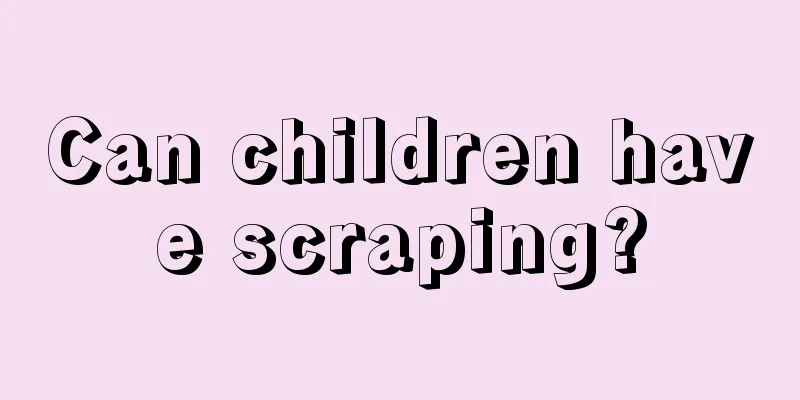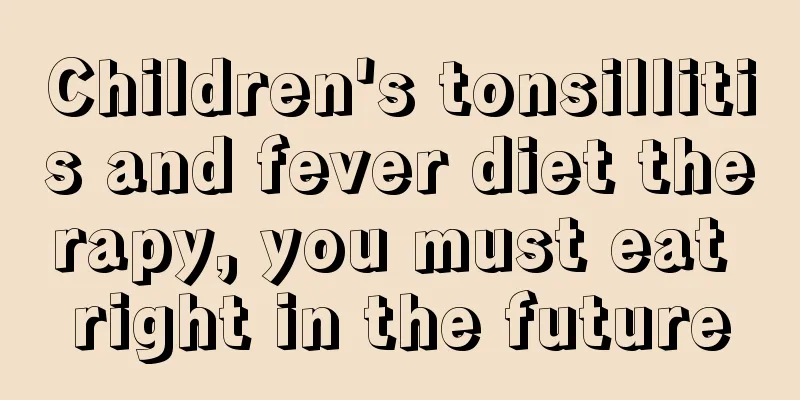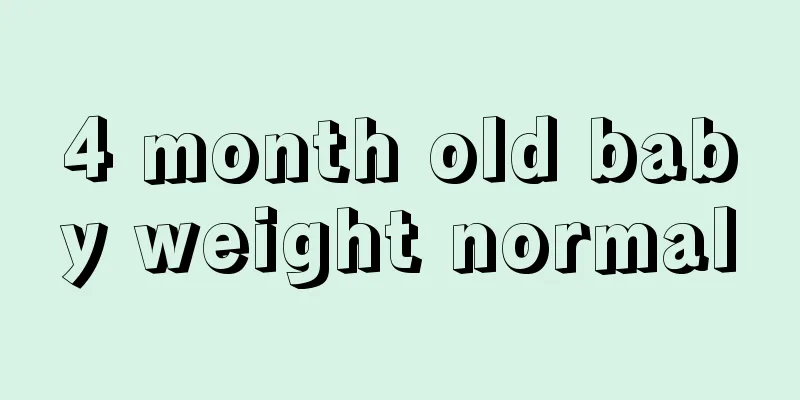3 month old baby spitting up milk

|
A three-month-old baby has not yet fully developed. All aspects of his body are delicate, his throat is thin, and his stomach capacity is small, so it is easy for the baby to spit up milk when drinking milk. This is a normal phenomenon. Parents don’t need to be too anxious. When feeding the baby, be careful not to feed too much milk. Feed after a period of time. When the baby spit up milk, be careful to prevent the baby from choking and causing unnecessary trouble. Three month old baby spitting up milk Spitting up is a common phenomenon in three-month-old babies. It means that the food in the stomach is emptied forcefully and in large quantities. The reason why three-month-old babies are prone to spitting up is that their stomachs and throats are not yet fully developed. As long as preventive measures are taken, spitting up can be prevented. It is normal for a three-month-old baby to spit up milk, so mothers don’t need to worry too much. This is because the newborn's stomach is in a horizontal position and the pyloric sphincter is relatively relaxed. Once the baby eats a little more milk, vomiting may occur. As the child grows older, the frequency of spitting up will gradually decrease and stop at seven or eight months. Reasons for spitting up milk in three-month-old babies Spitting up is a common phenomenon in three-month-old babies. Generally, there are two reasons for this: one is that it is a symptom of systemic or gastrointestinal disease; the other is that the anatomical and physiological characteristics of the baby's gastrointestinal tract make vomiting prone to occur. Generally speaking, vomiting caused by the second reason is more common. The baby's stomach, viewed from the front, is lying horizontally and is in an unstable state, while the cardia (the entrance to the stomach) is relatively loose. That is to say, when adults eat, after food enters the stomach, the cardia will contract to prevent food from flowing back into the esophagus; but because the cardia of a three-month-old baby cannot contract well, the milk that enters the stomach can flow back into the esophagus more easily. In addition, compared with adults, babies' larynx is higher, and their way of sucking the nipple is clumsy, which makes it easy for air to be inhaled into the stomach along with the milk when they feed. Therefore, when the baby burps or shakes his body, the milk is more likely to be spit out. If a baby spits up milk occasionally and is in good spirits, it does not necessarily mean that he is sick. If the child vomits several times in a row and vomits every time during feeding, you should pay attention to whether the child has a fever, the condition of his bowel movements, any changes in his spirit, etc. There may be problems with the gastrointestinal tract itself, or there may be lesions in other systems. You should take your child to the hospital for examination. What to do if your three-month-old baby spits up milk Once you find your baby spitting up milk, you need to deal with it in time, because the opening of the baby's esophagus and the opening of the trachea are connected in the throat. The most worrying thing when spitting up milk is that the milk suddenly flows back from the esophagus to the throat and enters the trachea by mistake when inhaling, which is the so-called choking. If the amount is large, it will cause trachea obstruction, breathing will be impossible, and hypoxia will immediately endanger life. When the amount is small, it can be inhaled directly into the deep lungs and cause aspiration pneumonia. For mild spitting up or regurgitation, babies can usually adjust their breathing and swallowing movements by themselves, so there is less risk of aspiration into the trachea. Parents only need to closely observe their breathing conditions and skin color. If your three-month-old baby vomits a lot, please follow the following methods to deal with it: 1. Sideways If vomiting occurs when the baby is lying flat: quickly turn the baby's face to one side to prevent the vomit from flowing backwards into the throat and trachea due to gravity. Roll a handkerchief or towel around your fingers and insert it into your mouth or even your throat to quickly clean out the vomited or spilled milk and food to keep the airway open and avoid obstructing breathing. 2. Pat your back If you find that your baby is holding his breath or his face turns darker, it means that the vomit may have entered the trachea. Immediately lay him prone on an adult's lap or on a bed (a hard bed) and pat his back hard four to five times so that he can cough it out. 3. Pinch the soles of your feet If all these steps have been done and the baby still does not respond, immediately stimulate the soles of his feet with force (or pinch or squeeze them) to make the baby breathe because of the pain. The most important thing at this time is to allow the baby to inhale and oxygen to enter the lungs to avoid hypoxia. In the moment of choking and saving lives, the most important thing is to buy time to get air (oxygen) into the lungs, rather than wasting time thinking about how to remove foreign objects. This concept is very important. ... Baby spitting up milk from nose It is common for newborns to spit up milk. Some babies spit up so much that milk comes out of their noses. The main reason for newborn spitting up is the baby's physiological characteristics, because the newborn's stomach and throat are not yet fully developed. The stomach of a newborn is horizontal and has a small capacity. The cardia connecting to the esophagus is wide, while the pylorus connecting to the small intestine is tight. Babies often inhale too much air when feeding, which can easily cause vomiting. Generally speaking, babies start spitting up when they are half a month old, and the condition is usually most serious when they are two months old. The frequency of spitting up gradually decreases after they are three months old, and spitting up becomes rare after they are half a year old. Some newborns spit up milk because they drink too much milk and the baby will spit out the excess. Some newborns spit up milk because they expel the air they drank into the stomach. After a newborn baby has just finished drinking milk, do not let the baby lie down flat immediately. This can easily cause the baby to spit up milk. When spitting up milk while lying flat, milk can easily come out of the nose. At this time, if the parents do not help the baby clear the nasal cavity in time, it can easily cause the baby to be unable to breathe, causing dangerous things to happen. After the baby finishes drinking milk, the correct approach is to hold the baby upright and have the parents gently pat the baby's back to allow the inhaled air to be expelled through burping. But sometimes, no matter how hard you pat the baby, the baby still cannot burp. Parents don’t need to worry. Generally, they should hold the baby for half an hour, and then put the baby in the crib, first lying on its side, and then lying flat. The best way to prevent your newborn from spitting up is to burp your baby. When the baby is 6 months old, he or she will not only master the sucking skills well, but also have a more mature gastrointestinal function, and the number of spitting up will be significantly reduced. Parents don't need to worry if their newborns spit up frequently, as long as the baby's weight gain is normal and his mental state is good. ... How to care for baby spitting up milk It is common for three-month-old babies to spit up milk because the baby's stomach is horizontal, has a small capacity, the cardia connecting to the esophagus is wide and has poor closing effect, and the pylorus connecting to the small intestine is tight. Babies often inhale air when feeding, and milk can easily flow back into the mouth, causing spitting up milk. When a mother sees her baby spitting up for the first time, she may be worried and at a loss as to what to do. In fact, as long as you pay attention to the following issues, you can prevent your three-month-old baby from spitting up. 1. Adopt a suitable feeding posture: try to hold the baby while feeding, so that the baby's body is tilted at about 45 degrees, and the milk in the stomach will naturally flow into the small intestine. This will reduce the chance of vomiting compared to feeding while lying down. After the baby finishes feeding, stand him up and pat his back until he burps. 2. Be sure to let the baby burp after feeding: hold the baby upright against your shoulder, pat the baby's back gently, let him burp out the air inhaled into the stomach while sucking milk, then put the baby on the bed, this way it will be less likely to spit up milk. 3. It is not advisable to let the baby lie on his back immediately after feeding. Instead, he should lie on his side for a while and then change to lying on his back. 4. The amount of milk should not be too much and the intervals between feedings should not be too close. 5. After the baby spit up milk, if there are no other abnormalities, generally you don’t need to worry about it. It will gradually get better and will not affect the baby’s growth and development. The milk that the baby vomits may be in the shape of tofu dregs. This is the result of the reaction between milk and stomach acid. It is normal and there is no need to worry. However, if the baby vomits frequently and the vomited liquid is yellow-green or coffee-colored, or is accompanied by symptoms such as fever and diarrhea, you should go to the hospital for examination in time. |
<<: Why does jaundice cause itchy skin?
>>: 6 month old baby spitting up milk
Recommend
The best way for kids to lose weight
With the gradual improvement of living standards,...
Children's weight gain diet
The health of children is often the most importan...
What is the jaundice value of infants?
Infant jaundice is the most common symptom among ...
How to deal with burns in young children?
Many friends do not understand how to deal with b...
How to guide babies who refuse to eat complementary foods
The problem of babies refusing to eat complementa...
Height and weight of a boy at three and a half weeks
People's ideas and concepts have changed a lo...
How to discipline a 7-year-old child who is disobedient
A seven-year-old child is in the stage of persona...
How many months does it take for a child to speak?
In fact, every child learns to speak at a differe...
What are the symptoms of anorexia in infants?
The baby's body is in the development stage a...
What should I do if my nine-year-old child has a hunchback?
No matter what age the child is when he or she de...
What is the reason for children's excessive hair?
After the baby is born, there will be some fluff ...
How to treat smegma in children
The physical health of children is what every par...
What does it mean to dream about wetting the bed?
Wetting the bed while dreaming may be more common...
What should I do if my baby cries while taking a bath?
Every mother knows that sometimes children are pa...
What to do if the child is weak?
We all know that children are in a period of rapi...









